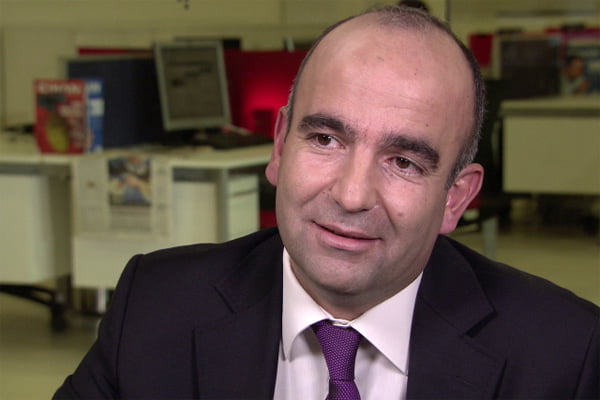Pineapple republic!

Date posted: February 28, 2014
ABDÜLHAMİT BİLİCİ
Such incredible things have been happening lately in our country that if perchance these things were to become permanent, I fear Turkey will once more be held up as an example, but this time around, as an example of what a legally grounded state must never look like.
The list of undemocratic and illegal developments is long and the items on it seem to each outdo one another in terms of seriousness: the re-shaping of the Supreme Board of Judges and Prosecutors (HSYK) secret file-keeping on private citizens, the turning over of authorities that resemble those possessed by the intelligence services of dictatorial regimes to the National Intelligence Organization (MİT), tightened controls over the Internet, increased pressure on the media, the illegal wiretapping of phones and the use of all these situations by Prime Minister Recep Tayyip Erdoğan as ingredients for his party’s rallies.
One of the many aforementioned illegal phone wiretappings was a recorded conversation between Fethullah Gülen and Turkish Confederation of Businessmen and Industrialists (TUSKON) Secretary-General Mustafa Günay. In this taped conversation, the word “pineapple” comes up. This word then crept into Erdoğan’s speeches for days afterwards. Because of TUSKON’s activities, Günay talks frequently to President Abdullah Gül, Erdoğan and other officials linked to the economy. In his conversation with Gülen, Günay mentions that pineapples had been sent as a gift from Uganda, where he is an honorary consul, and they had distributed these to friends and everyone had been very pleased with this.
This was all there was to this conversation but Erdoğan was not willing to leave it at that. Rather than calling for those who had illegally listened in to this conversation to account for their actions, the prime minister began referencing these pineapples every time he spoke publicly. On one occasion, he even drew the Turkish Industrialists and Businessmen’s Association (TÜSİAD) into the situation, asking: “Hey TÜSİAD, why are you not uncomfortable with these pineapples? Pineapples come and go. But as you know, these are not the pineapples you might be accustomed to. These pineapples are a code word for something.”
The furor then spread beyond Erdoğan, as writers and journalists sympathetic to the government began writing columns such as “Code Name Pineapple,” all about this illegally tapped conversation which contained no element of crime whatsoever. The topic even made its way to television screens, debated in an almost painful style for days. Statements were made not only by TUSKON President Rızanur Meral, but also Günay and TÜSİAD but it was no use.
Even Deputy Prime Minister Bülent Arınç was moved to remark, “One needs to stop talking about Uganda and pineapples; one needs to seek the truth.” After this, he went on to make some comments which everyone who joined in the campaign to stain the essence of the Gülen movement would do well to read carefully: “When I became a government minister in 2010, I headed off to Uganda, a country which I would have previously only been able to find after carefully scrutinizing a map. We had an envoy, but no office. We had headed there for a business meeting. I went to meet my friends. At the head of this list of friends is TUSKON. Mustafa Günay, who spoke on the phone, is a good friend of mine. I told him I was headed off to Uganda and asked him to send some businessmen so we could carry out a real meeting there. We landed in Uganda. Among those who met us on our arrival were people who had arrived there 11 years earlier to form a school. There were also students from this school. They served us meals and joined us in our meetings with the president…”
Of course, this warning did nothing to stop short the pineapple-related accusations. As it turned out, Erdoğan had also attended the TUSKON meetings; in fact, he had offered up much praise for its businessmen involved in seeing our country open up to the world, and of course helping to sponsor the movement. In fact, he had addressed the TUSKON General Assembly in April of 2012, noting: “You did not have the bankers of Galata, the Treasury or any public banks behind you. You refused to bow your necks to pressure and impositions. What you had behind you were the people of the country, just the people. And this is why you are so great.”
In the face of the miserable tableau we are seeing unfolding before us today, when my old friend Günay asked me whether I would like to come along to Uganda to attend the opening of a new school there and, as he put it, “eat the world’s best pineapples,” I accepted without hesitation. It would be wonderful if those who refer to the Gülen movement as a terrorist group, label its volunteers as “assassins” or call Gülen a “fake prophet” could see the heartfelt applause the work done by this group elicits.
As Arınç noted, volunteers working with the Gülen movement headed off to Uganda — without there even being an official Turkish envoy — and opened up six schools there. Many students were given scholarships, while the poor received support. The Gülen movement enjoys wonderful relations with not only the state but the people of Uganda, this country where the Nile River starts to flow, famous for its lush green and its delicious pineapples.
These words from Ugandan President Yoweri Museveni, who attended the opening of the Galaxy International Turkish School alongside his foreign minister, national education minister and defense minister, sums it all up: “I would like to congratulate those leaders who have brought this successful educational institution to our country and who are contributing so much to peace between societies. These schools are, like what we see in space, a real galaxy. I am always with you. And if you encounter any problems, here is our national education minister.”
Source: Todays Zaman , February 28, 2014
Tags: Africa | Defamation of Hizmet | Hizmet-inspired schools | Uganda |
























